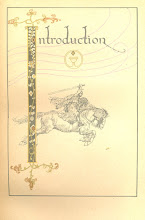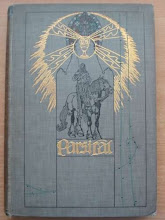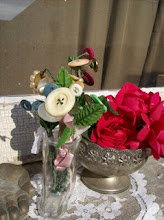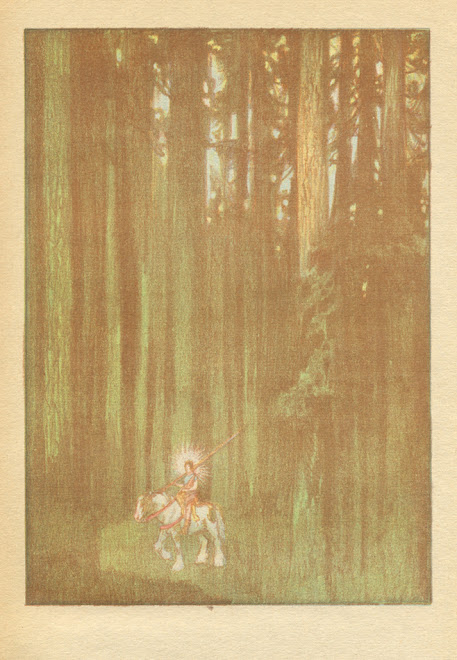I am up to page 431 in edits for Parsifal. I took a side-trip the last few days into some esoteric reading and it has slowed me down, but is well worth the slight delay. The book I have been reading is called Color Symbolism and is a collection of essays on the meaning of color in spirituality and religion. It was published in 1977 by Spring Publications, a Jungian publisher, and it is a record of some of the presentations from a conference at Eranos which was held in 1972. The interesting thing is that I have had this book for years. My friend in Austin, TX bought it for me, at my request, for my birthday sometime back in the nineties. For some reason, I never read it, until in 2004 or 2005 when I was doing a lot of spiritual work, I picked it up and looked briefly at one essay, "Color in Christian Visionary Experience," which tied in to what was going on in my life. I picked it up again about two weeks ago, and, again, it is synchronistically connected to both the section of Parsifal I have reached in my edits and some other things that have happened lately. I read an essay about color symbolism in Africa that dovetailed with alchemical stuff I have been studying and, strangely, with the Persian Sufism expressed in the other book I've also blogged about lately, The Man of Light in Iranian Sufism, by Henry Corbin. I somehow knew way back when I asked for it that this book would be significant someday, but am amazed at how prophetic that has turned out to be. As Dionysius the Areopagite says in the paper about Christian visionary experience, God is primordial light. Colors manifest from that light as veils of its descent and radiation into lower worlds, including our own; therefore, their presence represents the presence of divinity throughout all of creation. Color is extremely important in both of my King Arthur books, for exactly that reason - it indicates the principle of divine action. I've read extensively in the past about the meaning of color and light, but this book has taken me to a new level of understanding. I have just reached a section in my book edits where Parsifal undertakes the initation of a solar hero, and with each level he reaches, another color appears until the entire spectrum is represented. In work derived from that of Jakob Boehme, also referenced in the same paper, each color is associated with an archangel and a major note of the Western musical scale. Without having been familiar with his work at all prior to writing my book, that is a major component of the iniation process that I created for Parsifal. It's an archetypal construct, an element of the psyche, and occurs in many religious traditions.
There are additional essays which cover color sense and the meaning of color in biology, concepts of color in the ancient world, color and the expression of interior time in Western art, and the elimination of color in Far Eastern art and philosophy. This is the more comprehensive Eranos yearbook from which these essays were taken in case anyone is interested:
The Realms of Colour – Die Welt der Farben – Le monde des couleursLectures given at the Eranos Conference in Ascona from August 23rd to 31st, 1972 – Vorträge gehalten auf der Eranos Tagung in Ascona vom 23. bis 31. August 1972 – Conférences données à la session d'Eranos à Ascona du 23 au 31 Août 1972
Eranos-Yearbook/Jahrbuch/Annales 41/1972E.J. Brill, Leiden 1974
The condensed book I am reading is not available on Amazon right now, I'm sure it is long out of print, but here is its info in the event anyone wants to track it down:
http://www.amazon.com/Color-Symbolism-Eranos-Excerpts/dp/B000K1UJQE/ref=sr_1_1?ie=UTF8&s=books&qid=1222982156&sr=8-1
More on Spring Publications:
http://www.springpublications.com/aboutspring.html
More on Eranos:
http://www.eranosfoundation.org/index.php?node=76&rif=bd80812e4c
More on Dionysius the Areopagite:
http://en.wikipedia.org/wiki/Dionysius_the_Areopagite
http://en.wikipedia.org/wiki/Pseudo-Dionysius_the_Areopagite
More on Jakob Boehme:
http://en.wikipedia.org/wiki/Jakob_Boehme
Thursday, October 2, 2008
Subscribe to:
Post Comments (Atom)









No comments:
Post a Comment